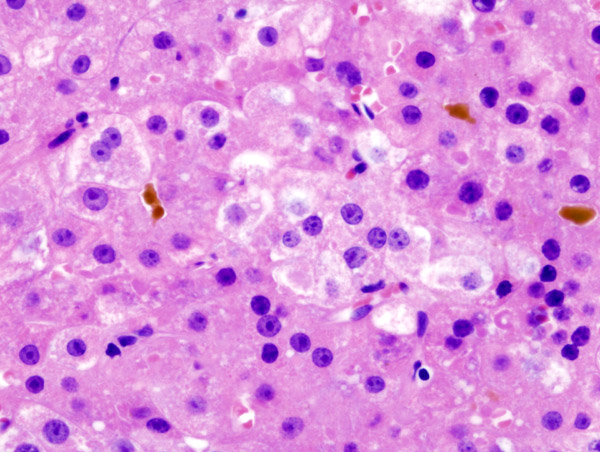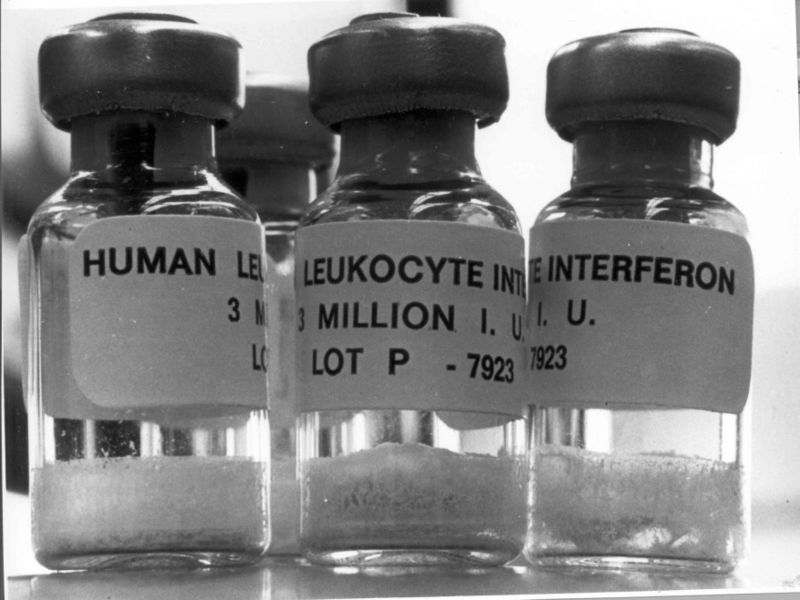Living With Hepatitis - A Patent's Perspective Part 2
Interview with
At the end of the day, Jules regarded the researchers as the unsung heroes of hepatitis treatment but I found out what had attracted him to the event in the first place.
Jules - For more awareness about hepatitis C and to see what goes on on the other side, which I found very interesting. Because I think the research people are the sort of the unsung heroes, shall we say.
Ben - And, you actually suffer from hepatitis C, how long have you been suffering?
 Jukes - 25 years, 26 years, I'm not really sure.
Jukes - 25 years, 26 years, I'm not really sure.
Ben - And in that time, as we've seen today, there've been some huge advances but still, relatively little is known and it's great that we have opportunities like this. And do you think more people should find out about the clinical research and the science behind it?
Jules - I think so, yeah, because people aren't so scared of what's going down. Because a lot of people are ignorant, shall we say, of what's hepatitis C and the causes and the facts and people think you can catch it by holding hands with somebody who's got it and that's not the case. And this sort of thing brings awareness from both sides.
Ben - And obviously it's very much in your interest as well as in the public's interest that we find new treatments and new cures
Jules - Well, without a cure I'd be dead. If you get it and you don't get treated, somewhere along the line you're going to die and that's as easy as...
Ben - So how have you been treated for hepatitis?
 Jules - I've had liver biopsies, I've had the early stage interferon when it was first under development, I had to give myself three injections a week and lots of tablets and that wasn't very nice. That failed. Then a few years later I took a second course of interferon for 18 months, which was pegylated so I had to have only one injection a week. That wasn't quite so bad but still not pleasant. And I've got twenty weeks left, now, of my third course of interferon, so far so good. You can have nothing in your body and then all of a sudden the treatment stops and it's back and they've got to give you something else. But you know you've just got to keep trying and trying. You've got to be a pretty clean liver, just keep yourself focussed and that's all you can do isn't it?
Jules - I've had liver biopsies, I've had the early stage interferon when it was first under development, I had to give myself three injections a week and lots of tablets and that wasn't very nice. That failed. Then a few years later I took a second course of interferon for 18 months, which was pegylated so I had to have only one injection a week. That wasn't quite so bad but still not pleasant. And I've got twenty weeks left, now, of my third course of interferon, so far so good. You can have nothing in your body and then all of a sudden the treatment stops and it's back and they've got to give you something else. But you know you've just got to keep trying and trying. You've got to be a pretty clean liver, just keep yourself focussed and that's all you can do isn't it?
Ben - And it's also very important that people get tested, as you said there's a lot of stigma. There's even stigma about having a test.
Jules - Well, if they've ever had tattoos, shared a needle or anything else then they should have a test because you never know. You could be walking around thinking you're happy as Larry, sound as a pound but, unbeknownst to you, you've got this virus inside your body that won't really do anything for ten, fifteen, twenty years and then it'll hit you like a tonne of bricks.
Ben - And in that time not only are you becoming more ill but also you're quite likely to be passing it on.
Jules - Well, this is the one. If you're aware yourself. Say you're in an intravenous drug-taking clique, if you've got it, all your friends'll have it and nobody'll know. It's just an ignorance thing isn't it?
Ben - Do you think that the fear of the treatment and it's side effects is something that keeps people from being tested?
Jules - Perhaps, but I don't think people realise about the treatment. I think the initial stages, a liver biopsy, that's sounds very scary to a lot of people, you know, they won't even go there. But once you've had the liver biopsy, that's the easy bit, shall we say. The treatment's not pleasant, but you know you've just got to grin and bear it. Because, like I say, it's either take it or don't take it. It's live or die, so where do you go?
Ben - So what do you think is going to be the future both from your perspective as someone who is looking for ways to control and treat the hepatitis but also what do you think based on what you've seen today is going to be the next step?
Jules - Well, I think the next step is going to be amazing. The technology is coming on in leaps and bounds, the researchers, they're getting there. What I've seen today has shown to me that they're making massive leaps and advances in the discovery of this virus and, you know, how to combat it which is very tricky. It's a cuckoo in the nest isn't it; do you know what I mean?
Ben - And that cuckoo in the nest may yet be flushed out.










Comments
Add a comment